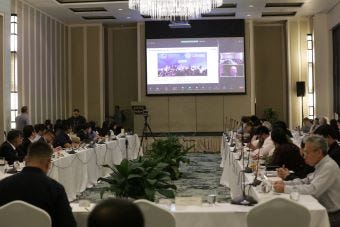In recent years, the Philippines has increased its commitment to climate action and its efforts to decarbonise the domestic economy. The Philippine power sector accounts for 58% of the country’s overall carbon emissions and will be an important driver of domestic emission reduction efforts to meet national climate and energy targets. Renewables, such as offshore wind, are expected to play a key role in the transition toward a low-carbon energy mix. With more than 17 thousand kilometers of coastline, the Philippines is estimated to have an offshore wind potential of 178 GW. However, this potential has yet to be leveraged. Alongside a changing power sector, progress on energy efficiency is needed to achieve the country’s emission reduction goals, with energy savings estimated at approximately 2% annually for the residential and commercial sectors. To deliver a clean energy transition, the Philippines requires estimated cumulative investments of over USD 300 billion between now and 2040.
In 2019, the OECD launched the Clean Energy Finance and Investment Mobilisation Programme to strengthen domestic enabling conditions to attract finance and investments in clean energy in emerging economies. The programme supports eight emerging economies in the development of policies and instruments to help scale up a pipeline of bankable clean energy projects. In December 2021, the OECD launched its CEFIM Programme in the Philippines to support the Philippines’ efforts to accelerate finance and investment for clean energy. As part of this Programme, the OECD, in collaboration with the Department of Energy (DoE) of the Philippines and other government institutions, has developed a Clean Energy Finance and Investment Roadmap of the Philippines, which brings together government and private sector stakeholders to agree key actions needed to unlock finance and investment in offshore wind and energy efficiency in public buildings in the Philippines. The report provides a comprehensive overview of the progress to date and the challenges to mobilise near-term finance in those sectors, assist the Philippines transition towards a low-carbon economy, and achieve broader development goals.
The OECD CEFIM Programme and the Department of Energy of the Philippines jointly hosted an event in Manila on 6-7 March 2024.
The workshop served as a forum to engage in discussions and exchange ideas on the way forward for the Philippines to unlock finance and investment in offshore wind and energy efficiency, especially in public buildings. This workshop provided a unique opportunity for fostering dialogue and the exchange of good practices between key public and private stakeholders, including from relevant government agencies, private sector, financial sector and international development partners to discuss forthcoming challenges in these clean energy sectors and set the course for a greener, more sustainable economy.
